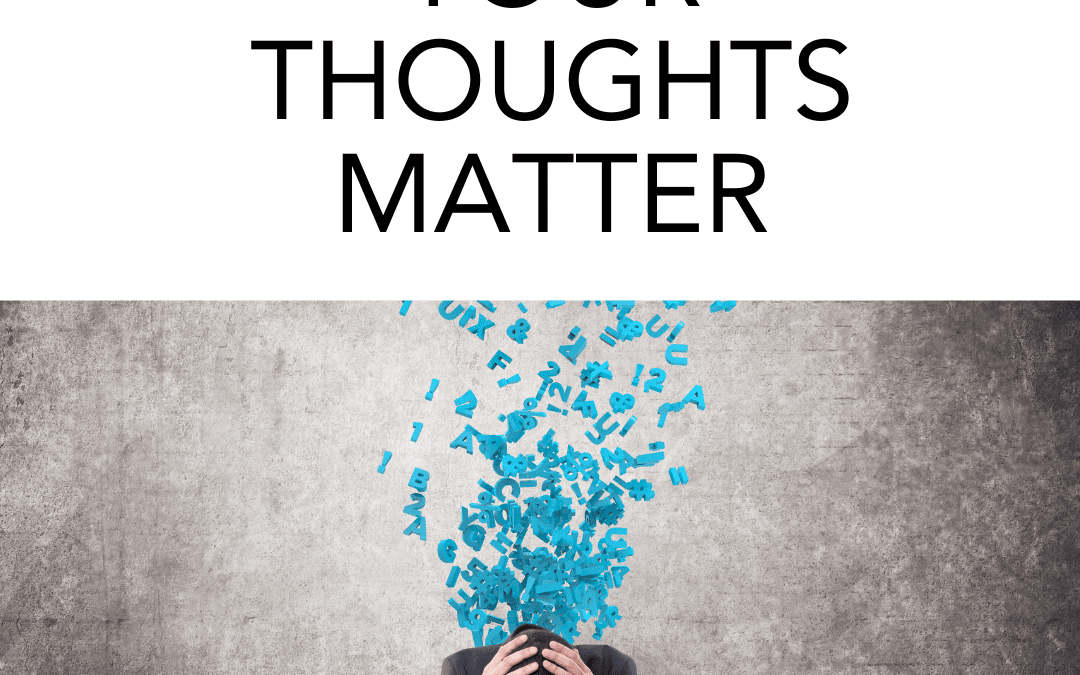In the high-stakes world of litigation, I’ve realized one powerful truth that isn’t just confined to the courtroom: A single thought can make or break your day. Our thoughts, like the cases I’ve presented, are built on evidence, perceptions, and emotions. But unlike a court verdict, we have the power to choose which thoughts we entertain and which we dismiss.
We can perceive roughly 40,000 bits of information per day. However, we can only think one thought at a time.
The Power of a Single Thought
It’s astounding how one fleeting thought can determine the trajectory of our entire day. Wake up with optimism, and you’ll notice opportunities. But wake up with a hint of pessimism, and obstacles seem to multiply. In my years as a trial attorney, I saw firsthand how the narrative in one’s mind could shape our reality, influencing decisions and outcomes.
In an attorney’s world, a single doubt about your client’s testimony or a piece of evidence could make the difference between winning or losing a case. Similarly, in our daily lives, a single negative thought can cloud our judgment, hinder our productivity, and affect our interactions.
Why Our Thoughts Matter
- Emotional Impact: Thoughts evoke emotions. While representing clients, I observed how individuals would react based on their thoughts and assumptions about the case’s direction. A thought of being undervalued can lead to feelings of resentment. Conversely, a thought that you’re making a difference can evoke pride and satisfaction.
- Behavioral Influence: Our actions often mirror our internal dialogue. In a courtroom, if I believed we were on the losing side, it could reflect in my presentation and arguments. Similarly, if you start your day thinking it’s going to be terrible, your actions might just ensure that it is.
- Physical Well-being: Persistent negative thoughts can trigger stress responses in the body, releasing hormones like cortisol. Over time, these can lead to health issues such as sleep disturbances, weight gain, and even cardiovascular problems.
Harnessing Thought Control: A Lawyer’s Toolkit
- Cross-examine Your Thoughts: As a lawyer, I wouldn’t accept every statement at face value. I’d probe, question, and seek the truth. Do the same with your thoughts. Is there evidence for your negative assumption? Is there a more positive or neutral perspective you’re overlooking? One of the best ways to be aware of your thoughts is the mantra “I am not my thoughts.” When we dissociate from our thoughts, we can examine them more fully.
- Frame Your Narrative: In the legal world, how you frame your argument is crucial. Similarly, frame your day with a positive affirmation or goal. Start with a constructive thought like, “Today, I’ll handle challenges with grace,” and let that set the tone.
- Seek Counsel: Even the best attorneys sometimes need counsel. Talk to trusted friends, family, or professionals. They can offer an outside perspective on your internal dialogue, helping identify any biases, beliefs or judgments that may be counter-productive.
- Adjourn Negative Sessions: In court, proceedings can be adjourned to a later date. Give yourself the permission to ‘adjourn’ negative thought spirals. Promise to return to them later if necessary, as giving yourself time often reduces their impact.
The Transformational Power of Positive Thinking
After my personal rebirth and transformation, I delved deep into various healing modalities. One recurring theme was the undeniable power of positive thinking.
Thoughts aren’t just abstract entities; they have palpable energy. A positive thought can enhance your energy levels, while a negative one can drain you. By consciously choosing empowering thoughts, you not only elevate your mood but also attract better experiences.
Remember that you can only think one thought at a time, and you get to choose which thought that will be. Pick one that is positive, uplifting and make sure you repeat it often during the day. In the science of epigenetics, how and what we think will determine the outcome of our efforts. Neuroplasticity will deeply engrain any often repeated thoughts and will be the conductor of our mental symphony.
Concluding Arguments
In the courtroom of life, you’re both the attorney and the judge. While you can’t always control the cases (or thoughts) that come your way, you have the discretion to decide their merit.
As someone who’s transitioned from the tense realm of law to a space of healing and coaching, I can assert with confidence: Our thoughts are our most potent tools. They can be our staunchest allies or our fiercest adversaries. So next time a thought emerges, especially one that threatens to ruin your day, cross-examine it, challenge its authenticity, and choose wisely.
The power to have a fulfilling day rests in your hands, or rather, in your mind.
PS: Are you seeking to start afresh and transform your life? Book a free consultation with James, the world’s leading healer, coach, and lawyer. Gain clarity, find inner peace, foster genuine connections, and unlock limitless possibilities. Start your transformative journey now by scheduling your complimentary discovery call with James!


